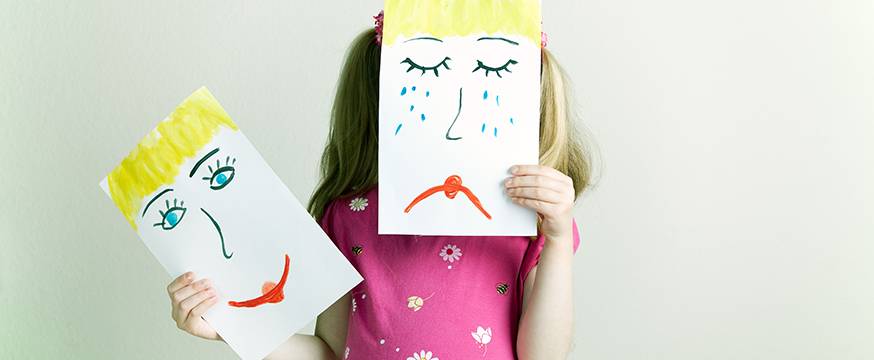
Children’s mental health – an asset for learning
Research 3 Oct 2019 4 minute readA recent study expands our understanding of what early skills help children to thrive at school, showing positive mental health is an asset for learning.
Children’s mental health – an asset for learning
Boosting academic learning is a key strategy for improving children’s health, development and life opportunities, especially for children who start school developmentally behind their peers.
Unfortunately, academic skills are declining in Australian schools. For example, the Programme for International Student Assessment shows that over the past decade, the skills of Australian children have been declining in the areas of reading, science, and mathematics. Opportunities to boost academic learning are therefore a priority.
A new study by researchers from the Centre for Community Child Health, a department of The Royal Children's Hospital and a research group of Murdoch Children’s Research Institute, the Australian Council for Educational Research and the University of Otago expands our understanding on the early skills that help children to thrive at school. The study examined whether children’s positive mental health when they start at school can influence their learning outcomes in Year 3, and revealed promising results.
Children’s mental health incorporates both:
- mental health difficulties, such as depression and anxiety and behaviour problems, and
- positive mental health (also termed mental health competence or social and emotional wellbeing) which refers to children’s psychosocial functioning.
Positive mental health is an asset for learning
The study found that children’s positive mental health when they start school relates to their academic performance across a range of children’s learning areas in Year 3.
Implications of the study
This study provides strong evidence to suggest that improving children’s mental health may help to optimise their learning at school.
This has implications for the 20% of Australian children who are arriving at school developmentally vulnerable or at risk, specifically in the domains of social competence and emotional maturity.
As children from disadvantaged backgrounds are more likely to experience social and emotional difficulties during the pre-school period, improving children’s positive mental health could also be a strategy for improving academic success and reducing differences in academic learning for disadvantaged children.
This would complement efforts to address mental health difficulties and disorder, which similarly have a negative impact on learning pathways at school.
How can we promote positive mental health in the early years?
In recent years, school-based programs targeting positive mental health have become more common. This study provides robust evidence to support the link between positive mental health and learning, however more evidence on specific school-based interventions is needed.
Evidence suggests that programs that enable positive and stable adult-child relationships in the home and early education and care settings help to promote social and emotional school readiness skills. Once children begin school, nurturing teacher-child relationships, safe and inclusive school communities, and family-school partnerships are beneficial for building both social and emotional skills and creating stimulating learning environments.
For more information:
Read the full article, ‘Positive Mental Health and Academic Achievement in Elementary School: New Evidence From a Matching Analysis’ by Meredith O’Connor, Dan Cloney, Amanda Kvalsvig, and Sharon Goldfeld, Educational Researcher, Volume: 48 issue: 4, page(s): 205-216.
Download the Centre for Community Child Health Policy Brief – Child Mental Health: A Time for Innovation
About the authors:
Dan Cloney is a Senior Research Fellow in ACER's Teaching, Learning and Leadership research program.
Meredith O’Connor is a Senior Research Officer at the Centre for Community Child Health, a department of The Royal Children’s Hospital and a research group of Murdoch Children’s Research Institute.